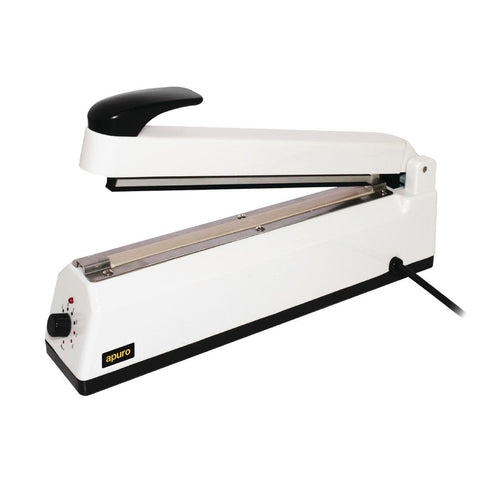
Recently Viewed


 Vogue Folding Step Stool 2 Tread F018
Vogue Folding Step Stool 2 Tread F018
470(W) x 900(H) x 30(D)mm











 Olympia Whiteware Cream & Milk Jugs 43ml (Box 12) C203
Olympia Whiteware Cream & Milk Jugs 43ml (Box 12) C203
50(W) x 50(H) x 50(D)mm


 Olympia Glass Handled Mason Jars - 470ml (Pack 12) CM698
Olympia Glass Handled Mason Jars - 470ml (Pack 12) CM698
67(W) x 132(H) x 67(D)mm


 Olympia Cafe Coffee Cup Aqua - 230ml (Box 12) GL460
Olympia Cafe Coffee Cup Aqua - 230ml (Box 12) GL460
60(W) x 90(H) x 60(D)mm


 Olympia Cafe Saucer Blue (Fits HC403& HC404) - 158mm (Box 12) HC407
Olympia Cafe Saucer Blue (Fits HC403& HC404) - 158mm (Box 12) HC407
158(W) x 21(H) x 158(D)mm


 Olympia Cafe Saucer Aqua (Fits GL460 & GL461) - 158mm (Box 12) GL464
Olympia Cafe Saucer Aqua (Fits GL460 & GL461) - 158mm (Box 12) GL464
155(W) x 20(H) x 155(D)mm


 Olympia Cafe Espresso Cup Blue - 100ml (Box 12) HC402
Olympia Cafe Espresso Cup Blue - 100ml (Box 12) HC402
94(W) x 59(H) x 94(D)mm


 Olympia Handled Mason Jar Glasses 470ml (Pack of 12) CE678
Olympia Handled Mason Jar Glasses 470ml (Pack of 12) CE678


 Vogue Polypropylene Round Container Bin Lid Large GG796
Vogue Polypropylene Round Container Bin Lid Large GG796
503(W) x 40(H) x 503(D)mm


 Eazyzap Brushed Stainless Steel bug zappers - 20W FP985-A
Eazyzap Brushed Stainless Steel bug zappers - 20W FP985-A
663(W) x 313(H) x 106(D)mm


 Eazyzap Brushed Stainless Steel bug zapper - 14W FP984-A
Eazyzap Brushed Stainless Steel bug zapper - 14W FP984-A
515(W) x 313(H) x 106(D)mm


 Eazyzap Brushed Stainless Steel bug zapper - 8W FP983-A
Eazyzap Brushed Stainless Steel bug zapper - 8W FP983-A
284(W) x 313(H) x 106(D)mm


 Eazyzap LED bug zapper Large - 24watt FD498-A
Eazyzap LED bug zapper Large - 24watt FD498-A
650(W) x 320(H) x 86(D)mm


 Eazyzap LED Bug Zapper Medium - 19watt FD497-A
Eazyzap LED Bug Zapper Medium - 19watt FD497-A
500(W) x 320(H) x 86(D)mm


 Eazyzap LED bug zapper Small - 15watt FD496-A
Eazyzap LED bug zapper Small - 15watt FD496-A
350(W) x 272(H) x 86(D)mm


 Apuro Manual Hamburger Machine CE225-A
Apuro Manual Hamburger Machine CE225-A
280(W) x 270(H) x 280(D)mm
Welcome to Restaurant Equipment Online NZ, your go-to destination for all your commercial kitchen equipment needs. In addition to our wide range of top-quality restaurant equipment categories, we also specialize in providing a comprehensive selection of Miscellaneous Kitchenware. From utensils and cutting boards to cookware and food storage containers, our miscellaneous kitchenware collection offers everything you need to ensure a seamless operation in your commercial kitchen. Whether you run a bustling cafe, a vibrant restaurant, or a thriving catering business, our extensive range of kitchenware is designed to meet your specific requirements. Ordering with us is a breeze, and our fast and efficient delivery service ensures that your equipment arrives promptly, allowing you to get started on your culinary adventures as soon as possible. Trust Restaurant Equipment Online NZ for all your kitchen needs, and experience our unparalleled professionalism and Kiwi charm.
Miscellaneous kitchenware refers to a variety of essential tools, utensils, and equipment that are used in the kitchen to prepare, cook, and serve food. It includes items like mixing bowls, measuring cups, colanders, cutting boards, and more.
Investing in high-quality kitchenware ensures durability, functionality, and longevity, enhancing your overall cooking experience. These products are designed to withstand heavy use, providing efficient and reliable performance. Plus, they often come with additional features and improved safety measures.
Each kitchenware item may have specific cleaning instructions, but in general, it is best to follow the manufacturer's guidelines. However, most kitchenware can be easily cleaned with warm soapy water and a soft sponge or cloth. Always dry them thoroughly before storing to prevent rust or damage.
Non-stick pans are safe when used properly. However, it is essential to avoid overheating the pans and never use metal utensils that can scratch the non-stick coating. Also, opt for high-quality non-stick pans that are free from harmful chemicals like PFOA or PTFE for extra safety.
Choosing the right knife depends on your specific needs and preferences. Consider the knife's purpose, blade material, handle comfort, and overall quality. It's also important to ensure that the knife feels comfortable in your hand and offers good control for accurate cutting.
Yes, stainless steel cookware is generally safe to use with metal utensils. However, be gentle while stirring or flipping food to prevent scratching the surface. Opt for utensils with rounded edges and avoid using excessive force.
Yes, silicone kitchen tools are heat-resistant and can withstand high temperatures, making them ideal for cooking and baking. They are often designed to resist melting, warping, and discoloration. Always check the manufacturer's specifications for the maximum heat tolerance of your silicone tools.
There are varying types of cutting boards, including wood, plastic, and bamboo. Wood and bamboo are gentle on knife blades, while plastic boards are more budget-friendly and dishwasher-safe. Choose a cutting board that suits your needs, but ensure it is made from a durable material and easy to clean.
While a kitchen scale is the most accurate way to measure ingredients, you can still achieve reasonable accuracy by using measuring spoons and cups. Be sure to level off dry ingredients and use the appropriate measuring tool for the ingredient at hand.
Many kitchenware items, such as baking sheets, oven-safe pans, and ceramic dishes, are designed to be used in the oven. Always check the manufacturer's instructions to determine the specific oven-safe temperature for each item.
Stainless steel is lightweight, easy to clean, and doesn't rust. Cast iron retains heat well, provides excellent heat distribution, and develops a natural non-stick surface over time.
It depends on personal preference. Plastic cutting boards are easy to clean, while wooden cutting boards are gentle on knife blades and have a natural aesthetic.
Blenders are great for making smoothies, purees, and cocktails, while food processors excel at chopping, slicing, and grating larger quantities of ingredients.
Not all pots and pans are oven-safe. Look for specific product labels or check the manufacturer's instructions to ensure the cookware can withstand oven temperatures.
Avoid using metal utensils that can scratch the non-stick surface. Hand wash the cookware with gentle soap and avoid abrasive scrubbers to prolong its non-stick properties.
Not all grill pans are compatible with induction cooktops. Look for grill pans specifically labeled as suitable for induction cooking.
Copper cookware offers excellent heat conductivity and even cooking, but it requires regular maintenance to prevent tarnishing. It's a worthwhile investment for professional chefs or enthusiastic home cooks.
Conventional ovens use stationary heat sources, while convection ovens have a fan that circulates hot air, creating even heat distribution and reducing cooking time.
It's best to hand wash kitchen knives to maintain their sharpness and prevent damage. Dishwashers can cause knives to dull or chip due to harsh detergents and agitation.
Consider the number of servings you typically cook and the types of dishes you make. A 2-quart saucepan is versatile for small to medium-sized recipes, while a larger 4-quart saucepan is suitable for larger quantities or boiling pasta.